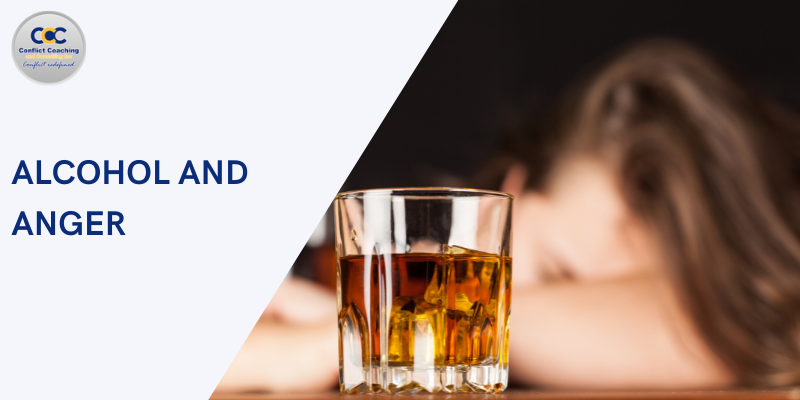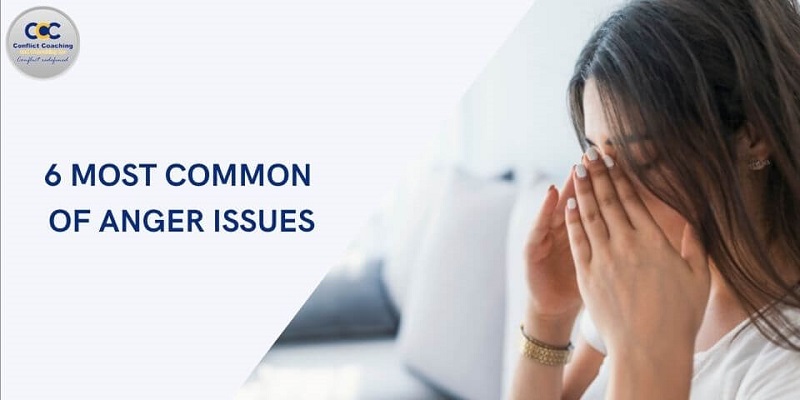
Alcohol and Anger: Understanding the Connection
Alcohol has a significant impact on our social landscape, from casual gatherings to formal events. It serves as a means of relaxation and socialization for many. However, it acts as a potential catalyst for heightened emotional responses, particularly anger.
Anger, a normal emotion, can be manifested in various behaviors ranging from mild irritation to explosive outbursts. When alcohol enters the equation, its impact on our neurobiology becomes essential to understand.
As a depressant, alcohol slows central nervous system activity, limiting inhibitions and promoting impulsive behaviors – including anger issues.
Beyond its physiological effects, the association between alcohol and anger can affect the mental health of an individual.
For numerous individuals, alcohol serves as a coping mechanism, offering temporary respite from underlying stressors, anxieties, or unresolved traumas. Yet, when these suppressed emotions resurface, they often manifest as different types of anger issues.
Understanding the relationship between alcohol consumption and anger expression is essential. By exploring the underlying mechanisms and psychological impacts, we can educate ourselves on how to deal with these dynamics effectively.
We can create an environment of emotional well-being and resilience by promoting awareness, exploring healthier coping strategies, and fostering support networks.
What is the Link Between Alcohol and Anger?
Before exploring the effects of alcohol on brain functions, it’s crucial to understand the connection between alcohol consumption and anger.
Alcohol has been shown to intensify feelings of anger and aggression in many individuals. This link is miscellaneous, involving both physiological and psychological factors.
Effects of Alcohol on Brain Functions
Alcohol can have a significant impact on the functions of the brain as it acts as a depressor inhibiting the emotions. Let’s explore the impact of drinking alcohol on various parts of the brain.
Influence on the frontal lobe
Alcohol’s impact on the frontal lobe, a region responsible for executive functions such as emotional regulation, decision-making, and impulse control, is profound.
As alcohol enters the bloodstream, it begins to affect the neurotransmitters in the brain, leading to disruptions in these critical functions.
Impaired emotional regulation, decision-making, and impulse control
The frontal lobe’s impairment under the influence of alcohol can result in diminished emotional regulation, making individuals more prone to experiencing heightened anger.
Furthermore, compromised decision-making abilities and weakened impulse control can exacerbate aggressive behaviors, amplifying the expression of anger in alcohol-influenced situations.
Understanding these effects highlight the mechanisms through which alcohol can fuel anger and aggression, helping you the importance of mindful consumption and proactive strategies for managing emotions in alcohol-related contexts.
Relationship between Alcohol and Anger
The connection between alcohol consumption and anger is complex, with alcohol often acting as a catalyst that amplifies underlying challenges related to anger management. Let’s explore this relationship in detail.
Amplification of underlying anger challenges
For individuals already dealing with anger issues, alcohol can intensify and magnify these underlying challenges. This amplification occurs due to alcohol’s impact on the brain’s neural pathways, particularly those involved in emotional regulation.
Under the influence of alcohol, individuals may find it more difficult to control their impulses and manage their emotions effectively, leading to a heightened susceptibility to feelings of anger and frustration.
Increased likelihood of expressing anger while intoxicated
Alcohol consumption significantly increases the likelihood of expressing anger while intoxicated. As alcohol impairs cognitive functions and inhibitions, individuals may experience a diminished ability to rationalize or diffuse feelings of anger.
Minor provocations that might typically be manageable can escalate into heated confrontations or aggressive outbursts when alcohol is involved.
Understanding this dynamic highlights the importance of mindfulness and caution regarding alcohol consumption, particularly for individuals prone to anger-related challenges.
By acknowledging the potential for alcohol to exacerbate anger and aggression, individuals can make informed decisions about their drinking habits and develop proactive strategies for managing their emotions effectively, both in sober and intoxicated states.
Deconstructing Anger and Alcohol Perception
Before exploring the common emotional experiences while drinking, it’s essential to understand how anger and alcohol perception are intertwined.
Misconceptions often surround the relationship between alcohol consumption and emotional responses, particularly anger.
1. Common Emotional Experiences While Drinking
Drinking can affect your emotional experience as it can limit your inhibitory emotions. Here are the common emotional experiences you need to explore before visiting your favorite bar.
2. Misconceptions about anger prevalence
Contrary to popular belief, anger is not the sole emotional experience while drinking. While some individuals may indeed experience heightened anger under the influence of alcohol, others may encounter a range of emotions, including happiness, sadness, or even euphoria.
It’s crucial to recognize that the emotional impact of alcohol varies significantly from person to person and can be influenced by various factors such as individual predispositions, external stressors, and social contexts.
3. Influence of alcohol on the expression of hidden emotions
Alcohol can influence the expression of hidden or suppressed emotions. Individuals may find themselves more inclined to express emotions that they typically keep concealed, such as anger, sadness, or vulnerability, when under the influence.
This phenomenon highlights the complex interplay between alcohol and emotional regulation, underscoring the importance of mindfulness and self-awareness in alcohol consumption.
Confusion between Anger, Aggression, and Hostility
Anger, aggression, and hostility seem like common terms that are related to each other. Alcohol can cause all of these conditions. It is important to understand the specific impact of alcohol on these conditions.
Clarifying the distinctions between these emotional responses
There exists confusion regarding the differentiation between anger, aggression, and hostility, particularly in the context of alcohol consumption.
While anger is an emotional state characterized by displeasure or irritation, aggression involves behavior intended to harm or intimidate others. Hostility, on the other hand, encompasses a more general disposition of antagonism or animosity.
Established link between alcohol and aggression
There is a clear link between alcohol consumption and increased aggression levels. However, it’s essential to recognize that not all individuals who consume alcohol will exhibit aggressive behavior.
The relationship between alcohol and aggression is complex and multifaceted, influenced by individual differences, situational factors, and alcohol dosage.
By explaining these distinctions and eliminating common misconceptions, we can create a comprehensive understanding of the relation between alcohol consumption and emotional responses, ultimately promoting healthier attitudes and behaviors towards alcohol use.
3 Ways to Manage Anger in Intoxicated Individuals
Before exploring the de-escalation strategies, it’s crucial to understand the importance of managing anger in intoxicated individuals.
When alcohol is involved, emotions can run high, and conflicts may escalate rapidly. Thus, assessing the level of risk is paramount to ensure personal safety and promote a constructive resolution.
1. Assessing the Level of Risk
Identifying the risks associated with alcohol consumption can help with the implementation of prevention strategies. Here are some of the strategies that can help with the risk assessment.
2. Differentiating verbal expression of anger from physical aggression
In assessing the level of risk, it’s essential to differentiate between verbal expressions of anger and potential physical aggression.
While verbal outbursts can be distressing, they may not necessarily escalate to physical violence. However, it’s crucial to remain vigilant and attentive to signs of escalating aggression.
3. Ensuring personal safety as a priority
Ensuring personal safety should be the primary concern when managing anger in intoxicated individuals. This involves being aware of exit routes, maintaining a safe distance, and seeking assistance from authorities or trained professionals.
4 De-escalation Strategies
Here are some effective strategies that can de-escalate the issues caused by alcohol consumption:
1. Maintaining calmness and composure
When confronted with anger in intoxicated individuals, maintaining calmness and composure is key. Avoid escalating the situation further by remaining level-headed and composed, even in the face of provocation.
2. Guiding the person to a quiet environment
Creating a conducive environment for de-escalation is essential. Guiding the individual to a quiet and private space away from potential triggers or onlookers can help reduce stimulation and facilitate more effective communication.
3. Providing reassurance and support
Offering reassurance and support can help alleviate feelings of distress and frustration. Letting the individual know they are heard and understood can de-escalate tension and foster a sense of trust and cooperation.
4. Encouraging responsible alcohol consumption and hydration
Encouraging responsible alcohol consumption and hydration can help mitigate the risk of escalating emotions. Water and non-alcoholic beverages can help dilute alcohol intake and promote clearer thinking.
By employing these de-escalation strategies and prioritizing safety and well-being, we can effectively manage anger in intoxicated individuals and work towards a peaceful resolution of conflicts.
4 Co-treatment Approaches: Alcohol Recovery and Anger Management
It is crucial to understand the significance of co-treatment approaches for individuals grappling with both alcohol recovery and anger management.
Integrated treatment plans that address both alcohol use disorder and anger issues concurrently offer a comprehensive and holistic approach to promoting long-term recovery and emotional well-being.
1. Individualized Treatment Plans
Recognizing that each individual’s journey toward recovery is unique, individualized treatment plans are essential.
By assessing the individual’s specific needs, circumstances, and underlying triggers for alcohol use and anger expression, treatment can be customized to address these factors effectively.
Furthermore, individualized treatment plans should encompass a thorough examination of the role of alcohol and anger in the individual’s everyday life.
By identifying triggers, stressors, and maladaptive coping mechanisms, treatment can target these underlying issues and promote healthier alternatives for managing emotions and cravings.
2. Cognitive Behavioral Therapy (CBT) Interventions
Cognitive Behavioral Therapy (CBT) interventions are widely recognized as practical approaches for both alcohol recovery and anger management.
Techniques such as stress inoculation and cognitive restructuring help individuals identify and challenge negative thought patterns and develop healthier coping strategies for managing stress and anger triggers.
Additionally, CBT interventions employ functional analysis to identify antecedents, behaviors, and consequences associated with alcohol use and anger expression.
By understanding the function of these behaviors, individuals can learn alternative coping mechanisms and stress management techniques to address underlying emotional distress effectively.
Moreover, CBT interventions encompass assertiveness training and interpersonal skills development, empowering individuals to communicate their needs and boundaries effectively while navigating challenging situations.
By enhancing assertiveness and interpersonal effectiveness, individuals can cultivate healthier relationships and reduce reliance on alcohol as a coping mechanism.
3. Additional Therapeutic Modalities
In addition to CBT interventions, incorporating family therapy and psychodynamic approaches can further enrich the treatment process.
Family therapy addresses familial dynamics and relationships, fostering support networks and promoting open communication. Psychodynamic approaches delve into underlying emotional conflicts and unresolved traumas, offering insight and resolution.
Group therapy and anger management classes provide a valuable platform for peer support and shared experiences.
By connecting with others who are on a similar journey, individuals can gain validation, encouragement, and practical strategies for navigating challenges associated with alcohol recovery and anger management.
4. Medication as Adjunctive Treatment
In some cases, medication may be utilized as adjunctive treatment to address co-occurring symptoms such as mood instability or alcohol withdrawal.
Mood stabilizers can help regulate emotional fluctuations, while withdrawal management medications assist in managing alcohol cravings and withdrawal symptoms, facilitating a smoother transition toward sobriety.
By integrating these co-treatment approaches into comprehensive and individualized treatment plans, individuals can embark on a journey of recovery that addresses both alcohol use disorder and anger issues effectively, fostering sustainable change and improved quality of life.
Conclusion
This blog was designed to help you understand the relationship between anger and alcohol and how they can amplify each other’s impact.
From exploring the neurological effects of alcohol as a depressant to unraveling the psychological complexities underlying anger manifestation, we have gained a profound understanding of the underlying mechanisms.
Crucially, our blog highlights the need for tailored interventions and comprehensive treatment modalities.
Recognizing that individuals may grapple with underlying traumas or stressors fueling both alcohol consumption and anger eruptions, it becomes essential to address these issues holistically.
Integrating therapy, robust support systems and personalized coping strategies is paramount to fostering sustainable progress towards emotional equilibrium.
By prioritizing personalized interventions, we can help individuals with healing and self-discovery. Through empathy and support, we can create environments that nurture healthier relationships with both alcohol and emotions.





Responses